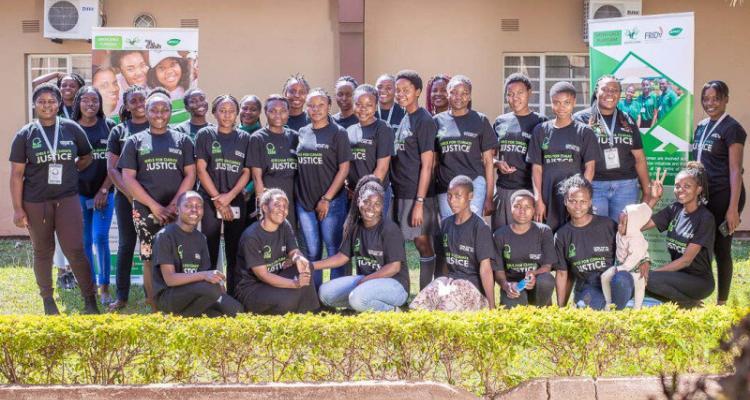
Joy Hayley Munthali, founder of Tawonga Cooking Oil Processing, is among seven winners of the 2023 Green Entrepreneurship Awards, which will see Munthali being awarded with matching grants of up to 15,000 EUR.
Tawonga Cooking Oil Processing is an enterprise in Malawi which provides a reliable market for women farmers’ crops. The company plays a pivotal role in supporting their economic empowerment.
The awards scheme, a flagship event of adelphi’s Green Entrepreneurship programme, aims to recognise and celebrate the most innovative and promising eco-inclusive and circular enterprises in developing and emerging economies.
The winners and runners-up, who hail from five countries across Africa and Asia, showcased innovative and sustainable enterprises, contributing to climate adaptation and implementing models of circular economy in their specific regions and countries. The seven winners and 35 runners-up are eligible for participation in the renowned Accelerator and Catalyser business development support programmes
This year, the awards featured two distinguished categories to celebrate the achievements of small and medium-sized enterprises (SMEs) contributing to the green economy through climate change adaptation and circular solutions.
The Circular Economy Awards category presented by Circular Economy Catalyst (supported by the IKEA Foundation) and the Climate Adaptation Awards hosted by SEED (funded by the Government of Flanders).
The three winners of the Climate Adaptation Awards are from Malawi, Zambia and Botswana.
Apart from Munthali, the other two include Bonolo Monthe, founder of Maungo Craft in Botswana. Maungo Craft creates environmentally friendly products working with women in its value chain. It has established unique partnerships with indigenous oil manufacturers and smallholder farmers, creating employment for vulnerable communities at the base of the pyramid, particularly women in rural areas.
The Zambian winner is Frazer Handondo, founder of Forest Africa Zambia Limited in Zambia, which specialises in processing indigenous wild fruits, producing organic and natural juices and baobab seed oil. Forest Africa is improving rural incomes by creating a ready market for wild fruits which by enhancing the local communities’ ability to adapt to climate change and build their resilience using their locally available resources such as wild fruit trees.
Yves Wantens, General Representative of Flanders, the primary sponsor of the Climate Adaptation Awards said countries like Botswana, Malawi and Zambia are on the front line feeling the effects rising global temperatures.
“For this reason, we are so proud to support the Climate Adaptation Awards and provide the exceptional enterprises in these countries with the tools they need to enable green recovery and create lasting change for the wider community and the planet,” said Wanterns.
The four winners of the Circular Economy Awards include Abhimanyu Singh whose company aims to revolutionise the construction industry by providing affordable and sustainable homes to underserved communities through their composite paper honeycomb panels.
The four also include Sahar Mansoor, founder of Bare Necessities Zero Waste Solutions which offers zero-waste alternatives to conventional personal, lifestyle, and home care products. With a female led manufacturing team, they handcraft their PETA-certified products using ethically sourced ingredients, aiming to make conscious everyday consumption accessible.
The other winners are Elizabeth Mbogo, founder of Botanic Treasures, and Nicholas Ndekei, founder of Zihanga Ltd.
Botanic Treasures manufactures palate-friendly nutritional products using a circular cultivation based on a Moringa tree agroforestry system.
Zihanga Ltd founded by Nicholas Ndekei, converts organic waste into valuable resources through affordable chicken colony cages. They empower families by increasing agricultural productivity and address social and environmental challenges.
Ahmed Sameh, Programme Manager of IKEA Foundation, the primary supporter of the Circular Economy Awards said the winning enterprises are key to tackling crucial areas such as making food systems circular and sustainable, capturing the value of electronic waste, increasing water usage efficiency, designing out plastic waste and promoting slow fashion.
“Their work is driving scalable solutions to the challenges faced by circular economy practices. At IKEA Foundation, we want to congratulate every single one of them for their ground-breaking contributions to a more sustainable future. With these awards, our aim to accelerate the transition towards a circular economy, where resources are optimised, waste is minimised, and sustainable practices are embraced.”














